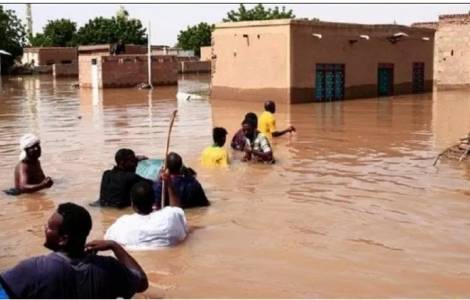
Karthum (Agenzia Fides) –– A quarter of the population of Sudan is facing a situation of acute hunger. It is estimated that 12 million people suffer from this emergency, and the figure could reach 18 million by the end of this month, double the figure recorded in 2021.
According to a recent report published by the Famine Early Warning System Network (FEWS NET), prices of staple foods are 250-300% higher than last year and 550-700 % above the five-year average. This situation
aggravates the pre-existing acute food insecurity, in addition to the recent floods and mass displacements. In fact, Sudan is experiencing its fourth consecutive year of flooding, with above-average rains causing deaths and partially or completely destroying nearly 44,000 homes across the country. Entire villages have been flooded and many families have lost all their belongings. Authorities have declared a state of emergency in six of the country's eighteen provinces. "We ask God to continue to give people strength in this difficult and unexpected moment that is seriously affecting the entire population," said the Bishop of the Diocese of Wau, Mathew Remijo Adam, referring to those affected by the floods in South Sudan that have displaced more than 70,000 people in Western Equatoria.
Reports of deaths from starvation have emerged in recent months, highlighting the growing food emergency that is spreading from rural to urban areas. Among the initiatives promoted is a new school feeding program that will benefit 400,000 students, announced by the Vice President of Sudan's Sovereignty Council and Commander of the Rapid Support Forces (RSF), Lieutenant General Mohamed 'Hemeti' Dagalo. Referring to the Sudanese School Feeding Initiative, Hemeti urged all states in the country to multiply their efforts to bring the country and citizens out of poverty and into production and economic well-being. "The magnitude of the great political, economic and social challenges facing Sudan requires unity, social cohesion and mutual aid," he said.
The first phase of the project is aimed at some 400,000 students in the basic, middle and secondary stages. "We will do our best to transform the program into sustainable national programs and integrate them into national policies targeting vulnerable groups". (AP) (Agenzia Fides, 10/10/2022)